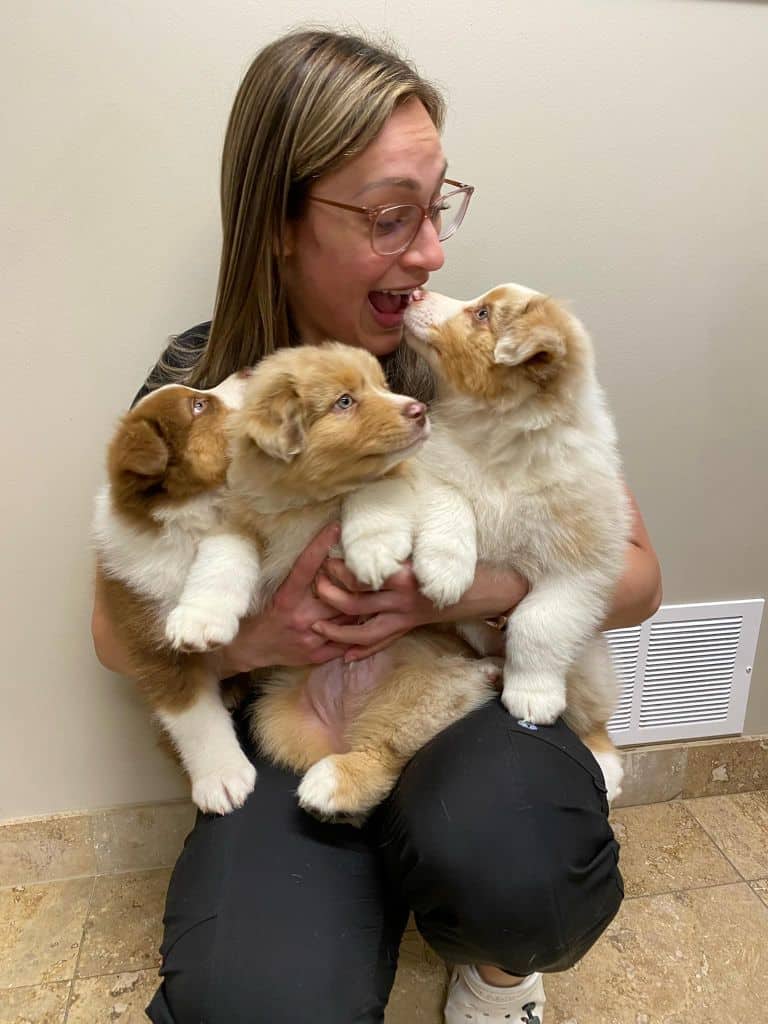Proper Nutrition For Your Puppy Is Important
Proper Nutrition For Your Puppy Is Important

Puppies experience a great deal of the world through their teeth, gums, and taste buds. They definitely get into the strangest things, and will try to put just about anything in their goofy little mouths. Providing the right types of food at particular stages in their development is key to proper growth and long-term health. Let’s dig into what constitutes a healthy diet for a puppy, and when to graduate to adult food.
So Many Questions
Raising a puppy is anything but straightforward. You want to concentrate on training, socialization, and fun, but it’s important to ask questions about balanced diet for puppies, food types, meal schedules, and age-appropriate modifications.
Breaking It Down
Your puppy’s breed(s) will guide the type of food you provide. Puppies of smaller breeds will reach their full size by their first birthday, but larger breed puppies still need nutrients for growing bodies well into their second year.
We are happy to discuss the right types of puppy foods that fulfill the needs of your growing puppy. We recommend scheduling their first wellness visit within the first week or two following adoption.
“Your puppy may appreciate dry, crunchy kibble, or they might prefer moist, canned foods. As long as the food choice meets their growing needs, stick with what they like. – we order puppies to be on dry food eventually (better for their teeth).” – Dr. Bertrand (Parkside Practice Owner)
Getting to Know Your Puppy
There are so many different types of commercially available dog foods. Your puppy may appreciate dry, crunchy kibble, or they might prefer moist, canned foods. As long as the food choice meets their growing needs, stick with what they like.
How Many Meals?
As your puppy ages, their meal frequency and portions will change. Because they grow so rapidly in their first year of life, they need small meals throughout the day to sustain high levels of energy.
Conveniently, you can match your puppy’s meals with their new potty schedule. For example, a three month old puppy would benefit from this type of routine:
- Wake up early every morning (about 6 a.m.) for potty time and breakfast.
- About mid-morning (9 a.m.), take them outside again to their designated pee spot.
- Around noon, encourage them to go potty before giving them lunch and water.
- About 3 p.m., repeat the potty process, but only offer healthy treats during training or socialization periods. Be sure to use high value treats (high fat or high protein) for training to help with motivation!
- At 6 p.m., feed your puppy dinner. Engage in a bit more play time or training, giving lots of water breaks and potty breaks.
- Around 9 p.m., provide an extra potty break before bed.
Depending on your puppy’s breed, size, and lifestyle, they may need 4 meals a day until they’re about 6 months old. Then, working up to their first birthday, you can slowly transition their meals to twice a day.
Puppyhood Goes So Fast
When you switch to two meals a day, you can also start introducing them to food formulated for adult dog needs. If you have any doubts about this transition, please feel free to reach out to us at (705) 223‑3404 . Our team at Parkside Animal Hospital is always happy to help!
